Index relies entirely on the support of donors and readers to do its work.
Help us keep amplifying censored voices today.
We write to you as former winners of the Index on Censorship Freedom of Expression Award for journalism – and as exiles from our homes. All three of us have been forced into exile because of our work as journalists: in Saudi Arabia, Syria and the Maldives respectively. All three of us in the past three years.
No one wants to be forced to leave their place of birth. We reported on war, corruption and cover-ups in the countries in which we were raised and which we love – and our punishment has been expulsion and persecution. We write to you, separated from our families, and from homes that are not homes.
We have all received death threats. Repeatedly.
Zaina – who survived the Syrian regime’s crackdown on the uprising then the war, finally had to leave after she became a target for militias and troops. Safa, who spent three years covertly filming a mass uprising in Saudi Arabia’s Eastern Province, now moves from country to country. Zaheena, editor of an online newspaper, fled the Maldives after a police raid on her office following a long period of harassment in which she received death threats and a colleague was disappeared.
None of us consider ourselves brave or courageous. We are not reckless. We are women who simply want to write and broadcast freely about what is happening in the world. We continue to do this, even as exiles*.
But no one should have to live like this simply for being a journalist.
We need to speak out on media freedom. We need to support those speaking out. To continue to do this effectively in the challenging times ahead, Index needs your help.
A donation of £20 ensures a verified attack against media freedom is mapped publicly online; a gift of £100 enables an official report to pressure governments; a gift of £1000 supports our work helping journalism fellows.
Our goal is to raise at least £15,000 by the end of March for our work on media freedom over the next six months.
We hope you will join us in supporting Index and your right to a free press. Please donate today.
Yours,
Safa Al Ahmad, Zaina Erhaim, Zaheena Rasheed
*Zaina works for the Institute for War and Peace Reporting, Zaheena for Al Jazeera, and Safa continues to work as a freelance journalist.
[vc_row][vc_column][vc_column_text]
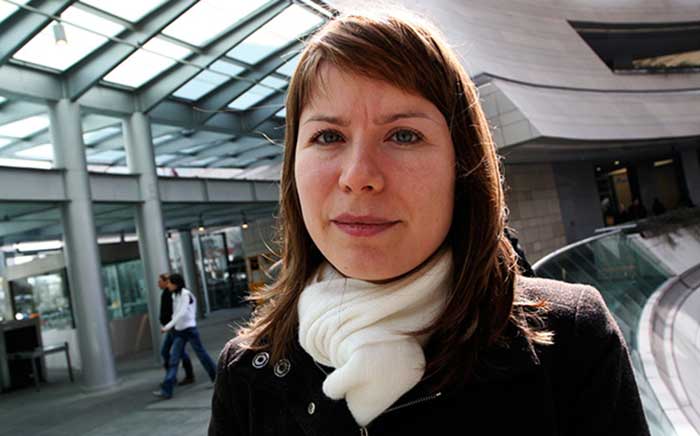
Wall Street Journal reporter Ayla Albayrak
Last week, a reporter for the Wall Street Journal was convicted of producing “terrorist propaganda” in Turkey and sentenced to more than two years in prison.
Ayla Albayrak was charged over an August 2015 article in the newspaper, which detailed government efforts to quell unrest among the nation’s Kurdish separatists, “firing tear gas and live rounds in a bid to reassert control of several neighborhoods”.
Albayrak was in New York at the time the ruling was announced and was sentenced in absentia but her conviction forms part of a growing pattern of arrests, detentions, trials and convictions for journalists under national security laws – not just in Turkey, the world’s top jailer of journalists, but globally.
As security – rather than the protection of fundamental rights and freedoms – becomes the number one priority of governments worldwide, broadly-written security laws have been twisted to silence journalists.
It’s seen starkly in the data Index on Censorship records for a project monitoring media freedom in Europe: type the word “terror” into the search box of Mapping Media Freedom and more than 200 cases appear related to journalists targeted for their work under terror laws.
This includes everything from alleged public order offences in Catalonia to the “harming of national interests in Ukraine” to the hundreds of journalists jailed in Turkey following the failed coup.
This abusive phenomenon started small, as in the case of Turkey, with dismissive official rhetoric that was aimed at small segments — like Kurdish journalists — among the country’s press corps, but over time it expanded to extinguish whole newspapers or television networks that espouse critical viewpoints on government policy.
While Turkey has been an especially egregious example of the cynical and political exploitation of terror offenses, the trend toward criminalisation of journalism that makes governments uncomfortable is spreading.

Mónica Terribas, journalist for Catalunya Rádio
In Spain, the Spanish police association filed a lawsuit against Mónica Terribas, a journalist for Catalunya Rádio, accusing her of “favouring actions against public order for calling on citizens in the Catalonia region to report on police movements during the referendum on independence.
The association said information on police movements could help terrorists, drug dealers and other criminals.
Undermining state security is a growing refrain among countries seeking to clamp down on a disobedient media, particularly in countries like Russia. In December 2016, State Duma Deputy Vitaly Milonov urged Russia’s Prosecutor General to investigate independent Latvia-based media outlet Meduza’s on charges of “promoting extremism and terrorism” for an article published the day before.
The piece written by Ilya Azar entitled, When You Return, We Will Kill You, documents Chechens who are leaving continental Europe through Belarussian-Polish border and living in a rail station in Brest, a border city in Belarus. Deputy Milonov said he considers the article a provocation aimed at undermining unity of Russia and praising terrorists.
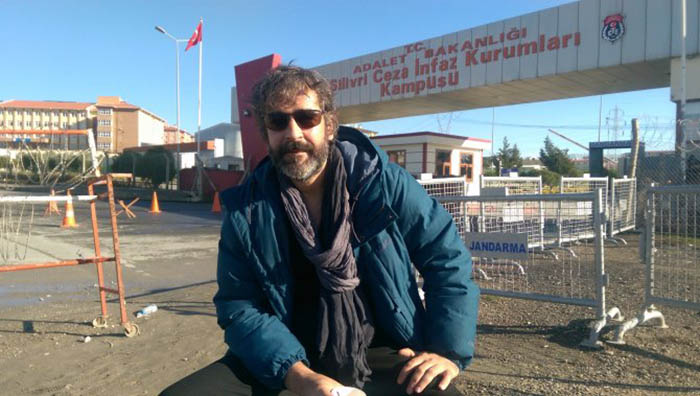
German journalist Deniz Yucel
In Turkey, reporting deemed critical of the government, the president or their associates is being equated with terrorism as seen in the case of German journalist Deniz Yucel who was detained in February this year.
Yucel, a dual Turkish-German national was working as a correspondent for the German newspaper Die Welt. He was arrested on charges of propaganda in support of a terrorist organization as well as inciting violence to the public and is currently awaiting trial, something that could take up to five years.
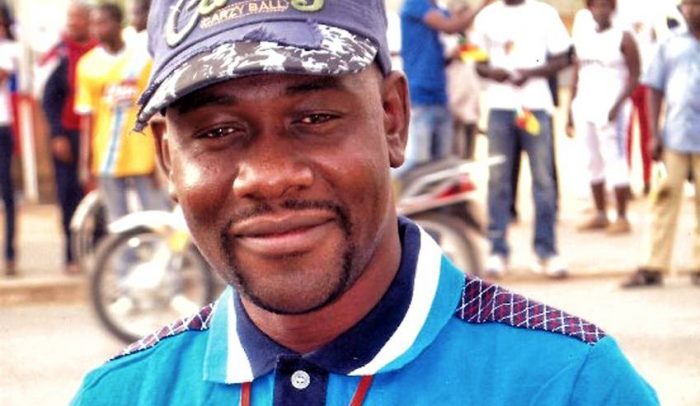
Ahmed Abba
Outside of the European region, journalists regularly fall foul of national security laws. In April, journalist Ahmed Abba was sentenced to 10 years behind bars by a military tribunal in Cameroon after being convicted of non-denunciation of terrorism and laundering of the proceeds of terrorist acts. Accompanying the decade-long sentence was a fine of over $90,000 dollars. Abba, a journalist for Radio France International, was detained in July of 2015. He was tortured and held in solitary confinement for three months.
The military court allegedly possessed evidence against Abba, who was barred from speaking with the media during his trial, which they found on his computer. Among the alleged evidence was contact information between Abba and the Islamist terrorist group Boko Haram. Abba, who was in the area to report on the Boko Haram conflict, claimed he obtained the information that was discovered on his phone from various social media outlets with the intent of using them for his report.
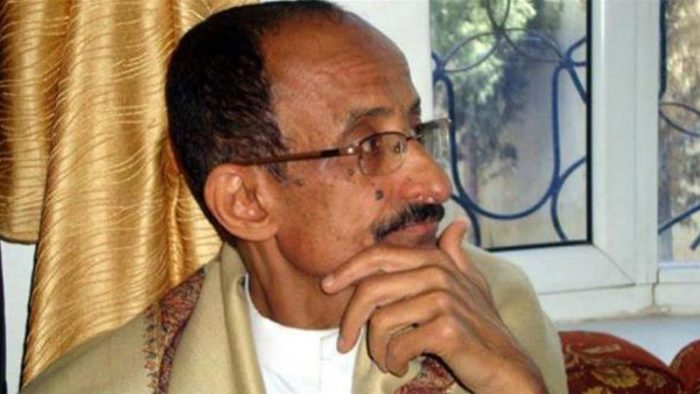
Yemeni journalist Yahya Abduraqeeb al-Jubaihi
Yemeni journalist Yahya Abduraqeeb Al-Jubaihi was sentenced to death earlier this month for allegedly serving as an undercover spy for Saudi Arabian coalition forces. Al-Jubaihi, who has worked as a journalist for various Yemeni and Saudi Arabian newspapers, has been held in a political prison camp ever since he was abducted from his home in September 2016.
Al-Jubaihi is the first journalist to be sentenced to death in Yemen following a trial that many activists believe was politically motivated because of Al-Jubaihi’s columns criticising Houthis.
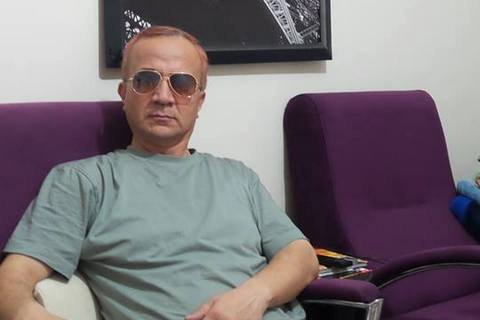
Journalist Narzullo Akhunjonov
Increasingly, governments are turning to Interpol to target journalists under terror laws. Turkey has filed an application to seek an Interpol arrest warrant for Can Dündar, demanding the journalist’s extradition. In September, Uzbek journalist Narzullo Okhunjonov was detained by authorities in Ukraine following an Interpol red notice.
Uzbek authorities have issued an international arrest warrant on fraud charges against Okhunjonov, who had been living in exile in Turkey since 2013 in order to avoid politically motivated persecution for his reporting.
And governments are also using terror laws to spy on journalists. In 2014, the UK police admitted it used powers under terror legislation to obtain the phone records of Tom Newton Dunn, editor of The Sun newspaper, to investigate the source of a leak in a political scandal. Police powers under the Regulation of Investigatory Powers Act, which circumvents another law that requires police to have approval from a judge to get disclosure of journalistic material.
No laughing matter

The Sun editor Tom Newton Dunn
Even jokes can land journalists in trouble under terror laws. Last year, French police searched the office of community Radio Canut in Lyon and seized the recording of a radio programme, after two presenters were accused of “incitement to terrorism”.
Presenters had been talking about the protests by police officers that had recently been taking place in France. One presenter said: “This is a call to people who people who killed themselves or are feeling suicidal and to all kamikazes” and to “blow themselves up in the middle of the crowd”.
One of the presenters was put under judicial supervision and was forbidden to host the radio programme until he appeared in court.
Radio Canut journalist Olivier Combi explained that the comment was ironic: “Obviously, Radio Canut is not calling for the murder of police officers, as it was sometimes said in the press”, he said. “Things have to be put back in context: the words in question are a 30 seconds joke-like exchange between two voluntary radio hosts…Nothing serious, but no media outlet took the trouble to call us, they all used the version of the police.”
Fighting back to protect sources
Two Russian journalists — Oleg Kashin and Alexander Plushev — are pushing back, Meduza reported. Kashin and Plushev filed the lawsuit challenging Russia’s Federal Security Service’s demands that instant messaging apps turn over encryption keys for users’ private communications, which is being driven by Russia’s anti-terror legislation. The court rejected the suit with the judge reportedly found that the government’s demands do not infringe on Plushev’s civil rights.
The journalists had contended that the FSB’s demand violated their right to confidential conversations with sources. Kashin said that in his work as a journalist he had come to rely on apps such as Telegram to conduct interviews with politicians.
Human rights organisation Agora is representing Telegram in a separate case against the FSB, which has fined the app company for failing to comply with its demands.[/vc_column_text][vc_row_inner][vc_column_inner width=”1/2″][vc_single_image image=”96229″ img_size=”full” onclick=”custom_link” link=”https://www.indexoncensorship.org/2017/10/turkish-injustice-scores-journalists-rights-defenders-go-trial/”][/vc_column_inner][vc_column_inner width=”1/2″][vc_column_text]
About 90 journalists, writers and human rights defenders will appear before courts in the coming days[/vc_column_text][/vc_column_inner][/vc_row_inner][vc_row_inner][vc_column_inner width=”1/2″][vc_single_image image=”96183″ img_size=”full” onclick=”custom_link” link=”https://www.indexoncensorship.org/2017/10/interpol-the-abuse-red-notices-is-bad-news-for-critical-journalists/”][/vc_column_inner][vc_column_inner width=”1/2″][vc_column_text]
Since August, at least six journalists have been targeted across Europe by international arrest warrants issued by Turkey, Azerbaijan, Uzbekistan and Kazakhstan[/vc_column_text][/vc_column_inner][/vc_row_inner][/vc_column][/vc_row][vc_row][vc_column][vc_custom_heading text=”Mapping Media Freedom” use_theme_fonts=”yes”][vc_separator color=”black”][vc_row_inner][vc_column_inner width=”1/4″][vc_icon icon_fontawesome=”fa fa-times-circle” color=”black” background_style=”rounded” size=”xl” align=”right”][/vc_column_inner][vc_column_inner width=”3/4″][vc_column_text]
Since 24 May 2014, Mapping Media Freedom’s team of correspondents and partners have recorded and verified 3,597 violations against journalists and media outlets.
Index campaigns to protect journalists and media freedom. You can help us by submitting reports to Mapping Media Freedom.[/vc_column_text][/vc_column_inner][/vc_row_inner][/vc_column][/vc_row][vc_row][vc_column][vc_custom_heading text=”Don’t lose your voice. Stay informed.” use_theme_fonts=”yes”][vc_separator color=”black”][vc_row_inner][vc_column_inner width=”1/2″][vc_column_text]Index on Censorship is a nonprofit that campaigns for and defends free expression worldwide. We publish work by censored writers and artists, promote debate, and monitor threats to free speech. We believe that everyone should be free to express themselves without fear of harm or persecution – no matter what their views.
Join our mailing list (or follow us on Twitter or Facebook) and we’ll send you our weekly newsletter about our activities defending free speech. We won’t share your personal information with anyone outside Index.[/vc_column_text][/vc_column_inner][vc_column_inner width=”1/2″][gravityform id=”20″ title=”false” description=”false” ajax=”false”][/vc_column_inner][/vc_row_inner][vc_separator color=”black”][/vc_column][/vc_row]
[vc_row][vc_column][vc_column_text]

David Sheen at Israel’s State Archives in Jerusalem (Credit: Rotem Malenky)
Israeli-Canadian journalist David Sheen, a former editor at Haaretz who regularly reports on racism against Africans within Israel, is the subject of a defamation lawsuit by former Israeli general Israel Ziv demanding $200,000. The case falls under what is known as a strategic lawsuit against public participation – or SLAPP.
“Ziv claims that I have defamed him by reporting on his activities and by referring to him in my tweets as an ‘arch-racist’, a ‘racist ringleader’, and a ‘war crimes whitewasher,’” Sheen said in an email to Index. “I contend that these are my opinions and that they are based on reported facts.”
In January 2017, Sheen wrote an article for the Electronic Intifada, an independent news website focusing on Palestine, entitled Netanyahu Openly Boasts of Israel’s War on Africans, in which he refers to Ziv as one of ten Israeli “ringleaders in Israel’s war on Africans”.
The mentions of Ziv in Sheen’s article refer to an investigation by Israel’s Channel 2 TV in 2016 that made public conversations between Ziv, now the owner of security consultancy company Global CST, and his associates during which they discussed a campaign with the objective to “whitewash the reputation” of the “cruel president” of South Sudan, Salva Kiir, “and to fortify his regime”. This followed a report by the United Nations that Kiir had allowed soldiers under his command to commit “a multitude of horrendous human rights violations,” including raping women and children en masse “in lieu of wages”. Ideas floated during Ziv’s meeting include that Kiir could blame these crimes on indigenous African tribal culture or that he could make a speech at the UN flanked by the victims.
Channel 2 TV and other news organisations that reported on this story are not facing legal action from Ziv, but Sheen, an independent journalist, is.
“While large news organisations employ teams of lawyers who can fend off SLAPP suits and legal harassment, independent journalists such as myself don’t, so we present a tempting target,” Sheen told Index. “But more than this: the mainstream media reports of Ziv’s efforts to aid the president of South Sudan were in the Hebrew language, which is only spoken by 0.1% of the world population.”
Sheen’s report was in English, the third most-spoken language in the world. “So even though my report was published by a small independent outlet, it has the potential of being read by many more people, and that is something that Ziv clearly wishes to prevent,” he said.
Sheen added that, in general terms, reporting on Israeli mistreatment of Africans is sometimes met with more resistance than reporting on Israeli mistreatment of Palestinians. “There is already a well-established ‘both sides’ narrative that can be utilised to try to explain away the latter. Israel’s defenders can say that Jews and Arabs have been battling for a hundred years, so Israeli mistreatment of Palestinians is just another round of tit for tat fighting.” he said. “They can’t use this narrative in regards to Israeli mistreatment of Africans because there is no recent – or ancient – history of conflict between Jews and African peoples. Unable to neuter criticism of the maltreatment of Africans, Israel’s defenders hope to silence reports about it.”
Sheen added that the libel lawsuit against him sends a clear warning to his fellow journalists that “in Israel, free speech is far from free, and powerful people can make critical speech extremely expensive for you, so don’t do it”.
“The case against David Sheen appears to be politically motivated,” said Melody Patry, head of advocacy at Index on Censorship. “No journalist should be prosecuted for exercising their freedom of speech.”
In recent years a number of lawsuits, many successful, have been made against journalists by officials in Israel, including a $464,000 2016 libel case against reporter Sharon Shpurer for a Facebook post disparaging an Israeli developer who is a convicted human trafficker. In July 2017, a journalist who claimed Prime Minister Benjamin Netanyahu was kicked out of his car by his wife was ordered to pay $32,500 in damages to the couple for libel.
“As it is, most Israeli media outlets serve as semi-stenographers of the Israeli army, repeating its press releases as though they were objective fact,” Sheen told Index. “The additional danger of crippling legal fees and fines will further disincentivise telling truth to power and leave Israeli society with increasingly impoverished fourth and fifth estates. Obviously, those who will suffer most as a result will be the country’s oppressed populations.”
In August 2017, the Israeli government announced proposals to ban Al Jazeera from operating in the country, echoing similar moves by Saudi Arabia and others who demanded that Qatar shutter the network and other media outlets as part of a list of demands to end a diplomatic crisis. The Israeli Government Press Office seemed intent on revoking the press credentials of Al Jazeera reporter Elias Karram but decided against this on 30 August. However, this was only after Karram provided a statement saying he does not support terrorism. The head of the GPO has said the body will “keep track of the network’s reports in Israel, in Arabic and in English, and will not hesitate to reach the necessary conclusions after consulting with legal and security officials”.
“Without question, freedom of the press is steadily decreasing in Israel,” Sheen told Index. “Sadly, many Israeli citizens seem to support it: in a 2015 article I wrote for Alternet, I noted that nearly half of Israelis believe that harsh public criticism of the government should be against the law.”
During a pre-trial session on 18 September, the dates for the case against Sheen will be set.
Supporters of Sheen have set up a petition to support the journalist.[/vc_column_text][/vc_column][/vc_row][vc_row][vc_column][vc_basic_grid post_type=”post” max_items=”4″ element_width=”6″ grid_id=”vc_gid:1504615911945-5d3d3e69-6e05-2″ taxonomies=”180, 449″][/vc_column][/vc_row]
[vc_row][vc_column][vc_column_text]Index on Censorship condemns the decision by the government of Israel to ban Al Jazeera from operating in the country.
“A free and open media landscape is necessary for the proper functioning of a democratic society. The silencing of Al Jazeera’s networks — whether English or Arabic — is a detriment to the public’s right to information,” Jodie Ginsberg, CEO of Index on Censorship, said.
The revoking of the press cards belonging to the network’s reporters is a clear violation of press freedom and the right to freedom of expression.
Israel’s decision echoes the move by Saudi Arabia and its allies, who demanded that Qatar shutter the network and other media outlets as part of a list of demands to end a diplomatic crisis.[/vc_column_text][/vc_column][/vc_row][vc_row][vc_column][vc_basic_grid post_type=”post” max_items=”12″ style=”load-more” items_per_page=”4″ element_width=”6″ grid_id=”vc_gid:1502111795096-e5480c80-f680-8″ taxonomies=”449″][/vc_column][/vc_row]